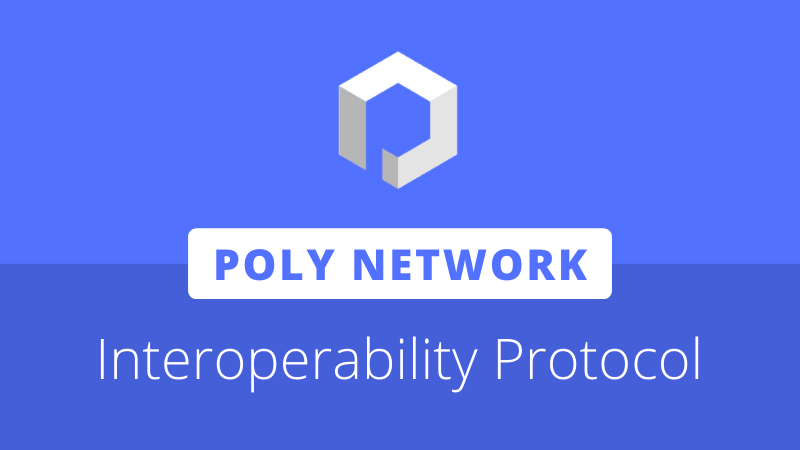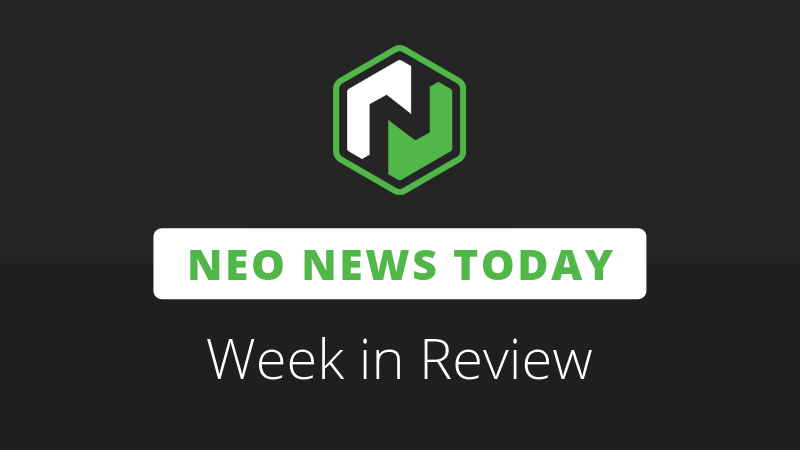
Neo Global Development (NGD) has announced the formation of Poly Network, a new protocol alliance formed to facilitate cross-chain transactions between all participating blockchains without issuing a new token and with minimal overhead needed for integration. Initial collaborators on the project include Neo, Ontology, and Switcheo.
Unlike current interoperability solutions that only work for homogenous chains, Poly Network is designed to work with any blockchain implementation. Intended to become a cornerstone of the next-gen Internet, the protocol aims to further improve its ease of integration with participating blockchains by not issuing its own tokens or requiring use of built-in smart contracts.
Neo co-founder, Da Hongfei, has been a long-time advocate of the next-generation Internet; the idea that instead of the centralized data silos and opinionated infrastructure of today, interoperability should be used to bridge the gap between the functionality offered by different blockchains.
In this larger network of blockchains, all interactions (such as asset transfer or smart contract operation) can be performed cross-chain in a frictionless manner, removing dependency on any single platform and giving users complete control over where and how they do business.
In the launch announcement, Da reiterated his sentiments on the importance of interoperability:
“I firmly believe that interoperability is the future of the blockchain industry. Within our current paradigm, both traditional and blockchain platforms exist as effectively isolated data silos—users and developers alike are restricted by each platform’s capabilities and limitations. With Poly Network, we are linking disparate and heterogeneous platforms to build a global cross-chain platform with the aim of realizing blockchain’s potential while overcoming its challenges—together.”
Poly Network
Poly Network provides a way to synchronize state across any number of blockchains, creating a secure and trustless foundation for executing cross-chain transactions. The system is designed to be easy to implement with any blockchain, intended to require little to no architectural modification regardless of the underlying implementation.
The network currently supports cross-chain transactions between Neo, Ethereum, Ontology, and Cosmos, with the intention to add Bitcoin support in the near future. Other smart contract platforms can add support for the protocol using two contracts, however both public and private blockchains without contract functionality can also implement cross-chain support using additional function modules.
Further, the scope of application is not limited to specific asset transfers or set operations—the Poly Network protocol can support cross-chain transfer of arbitrary data. Any blockchain will be able to benefit from any unique resource available to any other ecosystem in this way, for example Bitcoin users would be able to invoke applications running on the more flexible smart contract systems available on Neo or Ethereum.
Poly Network functions as a two-layer architecture, consisting of the Poly Chain; a new blockchain that acts as a state coordinator for each participant blockchain, and relayer entities; who watch for new incoming cross-chain operations and assist with execution of transactions on the destination chain.
Poly Chain
Poly Chain takes the form of a consortium blockchain powered by BFT consensus, designed to avoid forks and maintain a dependable, deterministic source of truth. Rather than primarily filling blocks with value transfers, blocks on Poly Chain contain the block headers from each of the participant chains. These participants could be public, private, or other consortium blockchains.
Every validator on Poly Chain is also required to run a full node for every participant chain, allowing it to independently verify the correctness of block headers. Every block produced by a round of consensus on Poly Chain therefore contains a synchronized snapshot of the trusted state for the entire multi-chain network.
This provides the basis for cross-chain transfers, and substantially reduces the overhead in chain synchronization for cross-chain users, as they only need to synchronize a single blockchain to validate cross-chain transactions, regardless of the number of participating chains.
Additionally, governance implementation on Poly Chain can be used to impart the benefits of deterministic finality to blockchains that natively only provide probabilistic guarantees (e.g. through PoW or PoS consensus mechanisms).
Relayers
Relayers are the couriers of the network. All cross-chain interactions in the Poly Network are formalized as either read or write operations; in each step, either data validity is being checked or a transaction is being performed. In both situations, relayers are used to help an end user perform the required steps for any given transfer.
When a user on one participant chain sends a transaction to another, the relayer will synchronize the state with the Poly Chain, acquiring a validity proof needed to port the transfer to the destination chain. The destination blockchain can use this proof to check that the original source transaction truly exists, so it can securely process the transaction as a success.
As with Poly Chain validators, relayer entities are required to run a node to synchronize with the Poly Chain in addition to nodes for any participant chains they wish to relay transactions between. Between the cost to run nodes, the cost to perform cross-chain operations, and competition with other relayers as each attempts to be the first to complete an operation, this means that relayers may bear significant costs.
To address this issue, relayer entities are directly incentivized through rewards attached with the original transaction. Since the transaction originator is responsible for providing sufficient incentive for a relayer to perform cross-chain services, there is no need for an arbitrary payment token or reward mechanism as is typically found in other interoperability solutions.
Next steps
Switcheo, a collaborating member of the Poly Network alliance, will be the first to put its capabilities to the test by using Poly Network to facilitate cross-chain transactions on its decentralized exchange.
Moving forward, Poly Network will continue development of several proposed enhancements, including a two-phase protocol for enabling atomic cross-chain transactions. In an atomic transaction, it is guaranteed that either all executions (i.e. both sides of a cross-chain transfer) happen together, or no transaction happens at all.
Though not strictly required, this can be achieved through generalized asset locking techniques that provide additional security to transactions. Poly Network’s solution consists of a prepare and commit/rollback phase, using a locking mechanism native to the blockchain (e.g. hashed timelock contracts for Bitcoin) to prevent movement of assets until the transaction result is finalized.
The alliance also seeks to onboard new networks as both board members and participants in the protocol, expediting development and adoption of the next-gen Internet through its universal interoperability solution.







About The Author: Brett Rhodes
Brett is a blockchain enthusiast and freelance writer who originally began producing content for the gaming & eSports industries. Now he spends most of his time contributing in the Neo ecosystem.
More posts by Brett Rhodes